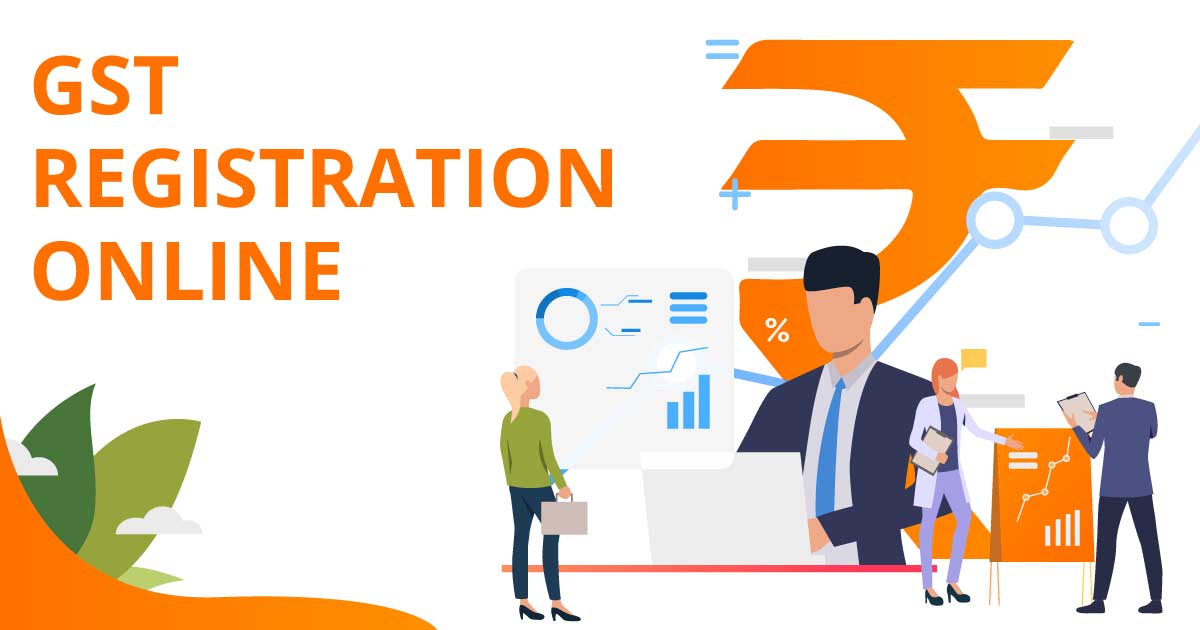Top Tips for a Smooth Singapore GST Registration Experience
Top Tips for a Smooth Singapore GST Registration Experience
Blog Article
The Ultimate Overview to Streamlining the GST Registration Refine and Requirements for Local Business Owners

Comprehending GST Fundamentals
To comprehend the basics of the Item and Provider Tax (GST) system, tiny organization owners must first understand its underlying principles and implications. GST is a value-added tax obligation levied on most goods and solutions for residential usage. It aims to improve the taxation process by changing several indirect taxes enforced by the state and main governments. Under the GST regime, companies are needed to register and collect tax obligation in behalf of the federal government, making sure transparency and compliance.
One of the crucial principles of GST is input tax obligation credit scores, which allows businesses to claim credit scores for tax obligations paid on their acquisitions. This device avoids the plunging effect of tax obligations and promotes effectiveness in the tax obligation system. In addition, GST is a destination-based tax obligation, suggesting that the tax obligation is imposed at the factor of consumption as opposed to the point of beginning. This ensures reasonable distribution of tax earnings amongst states based on where the goods or services are eaten. Recognizing these fundamental concepts is critical for local business owners to navigate the complexities of the GST system and ensure compliance with the legislation.
Qualification Criteria for Enrollment
Having developed a foundational understanding of GST principles, small company owners have to currently satisfy specific qualification requirements to wage the enrollment procedure. In India, entities took part in the supply of goods or solutions with an annual accumulation turn over going beyond Rs. 40 lakhs (Rs. 10 lakhs for special category states) are required to sign up for GST. Additionally, particular organizations such as those associated with inter-state supply of items, informal taxable persons, and those required to pay tax under the reverse fee device should sign up for GST irrespective of their turn over. Services that were signed up under the previous tax regimen (BARREL, solution tax, and so on) are also mandated to register under GST. Agricultural services that just supply produce out of main manufacturing are exempt from GST registration. It is vital for local business owner to thoroughly analyze their eligibility based upon these standards to make sure compliance with the legislation and prevent any fines for non-compliance.
Records Required for GST Registration

Simplified Enrollment Process Steps
Complying with the collection and confirmation of the requisite documents, the enrollment procedure for GST can be browsed through a collection of simplified actions made to assist in effective conformity for small company owners. The initial action entails going to the GST portal and picking the 'New Enrollment' alternative. Ultimately, the applicant should fill out Component A of the GST REG-01 form with details such as PAN, mobile number, and e-mail address to obtain an OTP for verification. When the OTP is gotten and entered, a Short-lived Recommendation Number (TRN) is generated for more proceedings. The next step needs loading out Part B of the kind with essential organization details, posting supporting records, and completing the confirmation procedure utilizing DSC or EVC. Finally, upon effective verification, an Application Reference Number (ARN) is provided, go to my blog suggesting the conclusion of the GST enrollment process. By complying with these streamlined actions, small company proprietors can efficiently register for GST and make certain conformity with tax policies.
Tips for Ensuring Conformity
To keep regulatory adherence and operational honesty, thorough oversight and proactive steps are pivotal in guaranteeing compliance with GST needs for tiny service owners. Tiny organization proprietors need to remain updated with GST regulations, filing due dates, and any modifications in tax rates to avoid fines and keep a good standing with tax authorities. Going to GST recognition workshops or training programs can boost understanding and compliance with GST laws, ultimately profiting the company in the long run.
Verdict
Finally, local business proprietors have to understand the fundamentals of GST, meet the eligibility standards, gather essential papers, and comply with the streamlined enrollment procedure steps to make certain compliance. By simplifying the GST registration procedure and demands, local business proprietors can avoid fines and operate their companies smoothly within the lawful structure - Singapore GST Registration. It is critical for local business proprietors to remain compliant and enlightened with GST policies to keep a successful business operation
Little service owners seeking GST registration should guarantee they gather and submit the essential documents to complete the enrollment process effectively. The records needed for GST enrollment generally include proof of service enrollment or incorporation, FRYING PAN (Permanent Account Number) card of the organization entity, address and identification evidence of the promoters/partners/directors, photographs, address proof of the area of business, financial institution account declarations or canceled cheques, and consent types. Going to GST understanding workshops or training programs can improve understanding and compliance with GST regulations, inevitably benefiting the business in the lengthy run.
By streamlining the GST registration procedure and requirements, tiny organization proprietors can avoid penalties and run their services efficiently within the lawful structure. It is vital for little business proprietors to stay certified and enlightened with GST regulations to keep a successful service operation.
Report this page